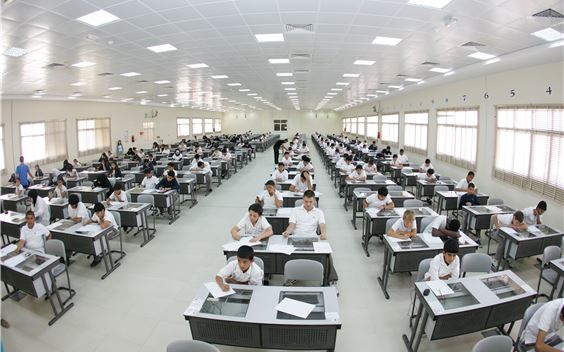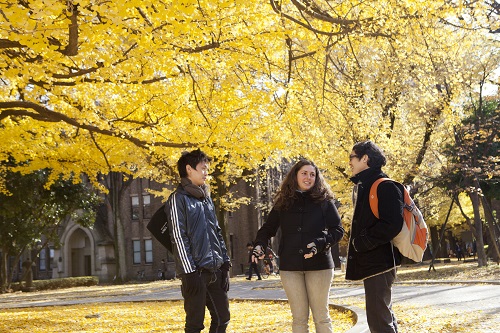Christopher Okigbo – On the lookout Back again at His Quick-lived Life and Taking Inventory of His Poetic Legacy

Christopher Ifekandu Okigbo one of the earliest Nigerian poets, who in his quick life time, for he died battling for the independence of Biafra, set up himself as a central figure in the advancement of modern day African poetry,has remained one of the most crucial African poets to write in English. Normally acknowledged as a grasp poet in spite of a complexity drawn from obscure allusions and symbolism, he has even been named Africa’s very best poet and one particular of the major modernist writers of the twentieth century. “For whilst other poets wrote great poems,” Chinua Achebe noticed.”Okigbo conjured up for us an incredible, haunting poetic firmament of a wild and violent beauty..”
His delivery and early lifetime
Okigbo was born on August 16, 1932, in the city of Ojolo, about ten miles from the town of Onitsha in Anambra Condition, to a father who was a trainer in Catholic missionary universities for the duration of the top of British colonial rule in Nigeria, Okigbo used his early many years shifting from station to station together with his father. Inspite of the point that his father was a devout Christian, Okigbo felt a specific affinity to his maternal grandfather, Ijejiofor of the Oto loved ones, who has always presented the priesthood to the shrine of the deity Idoto personified in the river Idoto that flowed by his village. Later in everyday living, Okigbo arrived to think that his grandfather’s soul was reincarnated in him.
His Educatiiobn at Umuahia and Ibadan
Okigbo graduated from Government Higher education Umuahia two several years immediately after the noted Nigerian author, Chinua Achebe, acquiring gained himself a track record as a voracious reader and a multipurpose athlete. The subsequent calendar year, he entered the College of Ibadan to examine Medicine, but switching to Classics in his second yr.. He also attained himself a reputation as a gifted pianist, accompanying Wole Soyinka in his first community visual appearance as a singer. It is thought that he wrote primary tunes at that time, nevertheless none has survived.
His original literary function and artwork
After graduating in 1956, he held a succession of jobs throughout the place. He worked at the Nigerian Tobacco Enterprise, United Africa Company, the Fiditi Grammar Faculty (in which he taught Latin), and was Assistant Librarian at the University of Nigeria in Nsukka, in which he served observed the African Authors Affiliation.
In 1958 his daily life came to a turning stage as he sought to know himself superior.He began publishing his will work in a variety of journals, notably Black Orpheus a literary journal that was bringing alongside one another the very best will work of African and African American writers. Whilst his poetry was in aspect a impressive expression of African nationalism, he was adamantly opposed to Negritude, which he denounced as a passionate pursuit of the “mystique of blackness” for its own sake. He also rejected the conception of a commonality of knowledge between Africans and black Us residents, even nevertheless it contravened the editorial coverage of Black Orpheus. For Okigbo, poetry was a highly personal endeavor. Even nevertheless he embraced African society he turned down the literary concept of Negritude, for he thinks he was just a poet.” A poet writes poetry and when a work is published it gets general public house. It truly is left to whoever reads it to decide regardless of whether it can be African poetry or English.” He as a result reported that there was not any this sort of point as a poet striving to convey African-ness as these a issue does not exist. A poet just merely expresses himself. On exactly these grounds he rejected the 1st prize in African poetry awarded to him at the 1965 Festival of Negro Arts in Dakar.
In 1963 he turned West African Representative of Cambridge College Press at Ibadan, a posture which enabled hiim to vacation commonly to the United Kingdom, exactly where he attracted additional focus. At Ibadan, he turned an energetic member of the Mbari literary club.For he was between the a lot of youthful artists who have been hunting for a system to trade their sights and share their several talents. He and Soyinka, have been also musicians, carrying out in jazz golf equipment. As a result in 1961 the Mbari Writers and Artists Club was born in Ibadan launched by the German writer and critic Ulli Beier. who invited Okigbo to be one of the original Mbari committee members collectively with: Georgina Beier, Wole Soyinka, J. P.Clark, Chinua Achebe, Ezekiel Mphahlele, Amos Tutuola, D. O. Fagunwa, Dennis Williams, Demas Nwoko, Uche Okeke, Frances Ademola and Janheinz Jahn, the ethnologist. The Mbari Club incooperated numerous actions as visual arts exhibitions, theatre, creative workshops and a publishing property.in which Okigbo at some point became an editor. It performed a decisive job in the delivery of modern African literature,. publishing not only the writings of its customers and adherents but those of the South African writers Dennis Brutus and Alex La Guma. For the visible arts, it presented the pioneers, these kinds of as the painters Uche Okeke and Yusuf Grillo, the sculptor and painter Demas Nwoko, and the silk-screen artist, Bruce Onobrakpeya. The Mbari Club promoted the generation of a legitimate motion of modern African artists, who ended up poised to produce a new creative lifestyle reconciling the continent’s cultural traditions and the technological language imposition.
Okigbo printed his to start with poems in the university student literary journal Horn, edited by J.P. Clark. though his works also appeared in the far more significant literary journal Black Orpheus. In the identical calendar year he also published as a pamphlet, Heavensgate, and a extended poem in the Ugandan cultural journal Changeover, posted in Kampala.. Okigbo’s early poems reflected the divided cultural heritage of his region, although it experienced influences from Virgil, Ovid, Eliot, and Pound which appear to be much better than the oral literature of the Igbo.
He concluded, and published the is effective of his mature a long time, which include Boundaries (1964), Silences (1962-65), Lament of the Masks (commemorating the centenary of the beginning of W. B. Yeats in the sort of a Yoruba praise poem, 1964), “Dance of the Painted Maidens” (commemorating the 1964 beginning of his daughter, Obiageli or Ibrahimat, whom he regarded as a reincarnation of his mom) and his final very prophetic sequence, “Path of Thunder” (1965-67), which was revealed posthumously in 1971 with, Labyrinths, which incorporates the poems from the previously collections.
The Biafran War
The 1960s was a period of time of great political upheavals in Nigeria with the place turning out to be an impartial republic in 1963 and four several years later on the eastern Ibo tribal region trying to secede.In 1966 the Nigerian crisis came to a head next the massacre of countless numbers of Igbo in the North. Okigbo, residing in Ibadan at the time, relocated to japanese Nigeria to await the consequence of the turn of events which culminated in the secession of the predominantly Igbo japanese location which ultimately declared itself as an impartial Biafra republic on May perhaps 30, 1967. .
Though Okigbo followed the social and political activities in his state keenly, his early poems moved on a individual and legendary level. Path of Thunder (1968) confirmed a new direction – its attack on bloodthirsty politicians (“POLITICIANS are back again in huge hidden ways of howitzers, / of detonators”) and neocolonial exploitation (“THE ROBBERS descend on us to strip us our laughter, of our / thunder”) reflective of the rise of radical actions in the late 1960s.
At the outbreak of the war Okigbo was doing the job for an Italian business enterprise corporation, Wartrade. Residing in Enugu, he labored alongside one another with Achebe to create a new but small publishing household, Citadel Push. However, the situations in his state created him adjust his plans, and abandon his position. He right away joined the new state’s navy as a volunteer, a area-commissioned key. He grew to become attained as a soldier, but was killed in motion in September 1967 throughout a key attack towards Nsukka, the college city in which he located his voice as a poet, and which he experienced vowed to defend with his everyday living.refusing safer positions at the rear of the frontline.. Posthumously, he was adorned with the Nationwide Order of Benefit of Biafra. Previously, in July, his hilltop household at Enugu, in which several of his unpublished writings were being was wrecked in a bombing. Also ruined was Pointed Arches, a poetic autobiography which is as an account of the encounters of lifestyle and letters which conspired to sharpen his innovative creativeness.
Legacy
Numerous of his unpublished papers, nonetheless, survived the war. His daughter, Obiageli, d his literary heir, recognized the Christopher Okigbo Basis in 2005 to perpetuate his legacy. The papers have been catalogued in January 2006 by Chukwuma Azuonye, Professor of African Literature at the College of Massachusetts, Boston, who assisted the basis in nominating them for the UNESCO Memory of the World Register. Azuonye’s preliminary experiments of the papers suggest that, apart from new poems in English, which includes drafts of an Anthem for Biafra, Okigbo’s unpublished papers include poems penned in Igbo. The latter are interesting in opening up new vistas in the review of Okigbo’s poetry, countering the sights of, especially Chinweizu, Onwuchekwa Jemie and Ihechukwu Madubuike , that he sacrificed his indigenous African sensibility in pursuit of an obscure euro-modernism.
“Elegy for Alto”, the final poem in Route of Thunder, is these days widely study as the poet’s “final testomony” embodying a prophecy of his possess loss of life as a sacrificial lamb for human freedom’
Earth, unbind me allow me be the prodigal enable this be
the ram’s greatest prayer to the tether…
AN Outdated STAR departs, leaves us in this article on the shore
Gazing heavenward for a new star approaching
The new star appears, foreshadows its going
In advance of a going and coming that goes on without end….
The two collections of verse that appeared through Okigbo’s life span set up him as an modern and controversial poet.
Capabilities of Okigbo’s poetry
His challenging but suggestive and prophetic poems present the affect of modernist European and American poetry, African tribal mythology, and Nigerian songs and rhythms. “Prophetic, menacing, terrorist, violent, protesting – his poetry was all of these,” S.O. Anozie wrote in Christopher Okigbo: Inventive Rhetoric (1972).
In “Distances” (1964) he celebrates his ultimate aesthetic and psychic return to his indigenous spiritual roots:
I am the sole witness to my homecoming.
Okigbo’s poetry would make constant and recurring references to mother Idoto. the “water goddess” primarily so in Heavensgate (1962) opening with the compelling strains:
Ahead of you, mom Idoto,
bare I stand,
These a reference appears to be central to the this means of the poem. “Idoto” is in actuality a river goddess, an essence in African cosmology which Okigbo in simple fact employs as a personalized image, elevating it to a saviour so rising as a power representing the security of indigenous cultures and religions from westernization. Heavensgate therefore marked his return to the African part of his heritage and self-renewal as a result of the goddess of the earth:
Right before you, Mom Idoto, naked I stand just before your watery presence a prodigal
leaning on an oilbean misplaced in your legend…
An invocation to the Idoto spirit essence opens the ritualistic pattern of the poem to which is additional the oilbean, the tortoise, the python and the rainbow..This final 1 could perform prophetic job as Sunday Anozie implies. It could also be seen as a snake capable of both of those foremost and devouring the poet.
Other god-heads or prophetic essences could be seen in Okigbo’s poetry. In Restrictions viii the prophetic position is invested on an significant image – the sunbird symbolizing the mourning conscience of the poet as the cohesive spirit of the men and women is finally desecrated by the imperialists. Right here too totems of the ritualistic worship ‘A fleet of eagles,/in excess of the oilbeam shadows/ ‘ ‘holding the sq. underneath curse of their breath’,’ a blind dog known for electricity of prophecy, howling’,’ the tortoise and the python who are classed as the twin-gods of the forest,’ ‘shrinehouse bamboo towers’, ‘egg-shells, tiger mask and nude spear.,’dumb-bells’ and ‘oblong -headed lioness’ abound.
The two collections-Heavensgate (1962) and Limits (1964)-reveal a particular, introspective poetry knowledgeable by a familiarity with Western myths loaded with rich, startling images. Labeled obscure by some critics, his poetry is demanding and allusive drawing as freely from modern day poets, these types of as T. S. Eliot and Ezra Pound, as it does from the Roman Catholic religion of his household in Ojoto. Okigbo maintained that his poetry must be seen as an natural and organic entire as it expressed his coming of age as a poet.
Okigbo’s influences are not limited to Africa.heading to Gerard Manley Hopkins as effectively as a blend of European, Asian, and African influences. He borrows from different resources like African faith as well as western faith. Passionate, pastoral and classical Greek and Latin influences like Vigil and Theocritus are significantly in proof alongside with allusions to the Bible in Okigbo’s poetry.
His borrowings, as Dan Izevbaye notes, commonly appear limited to the beauty and utility of the phrase by itself.with the ‘meaning’ or ‘experience’ of the poem normally controlled by its quick context. When these types of borrowings or images are thrust into new collocations or associations, his poetry becomes startling and fresh. This could possibly be imputed to the adaptation, summarization and conversion they go through prior to staying absorbed.
The principal supply of obscurity in Okigbo’s poetry is that references drawn from a personal earth by way of private symbols mainly by allusions to people who had been aspect of his childhood -oblongs these types of as Kepkanly, Enki, Flannagan, Haragin, Jadun, Upandru, Anna of the Panel and Eunice and obscure spots like Rickland and rockpoint cable. This sort of references recur all too frequently. They might no doubt have quite own importance for the poet to have stored referring to them. But these significance is lost on the reader who is entirely ignorant of their background.
A equivalent loss is experienced when the reader has no personal knowledge of these types of objects referred to as: ‘advent’, ‘dumb-bells’,’rockpoint of cable’, ‘Rockland’, ‘fucking angels’,’oblong-headed lioness’ and ‘a blind dog’ which all increase up to the obscurity.
Due to the fact Okigbo is creating of complex and tough topics,his expression could of requirement be uncommon and challenging to have an understanding of. This problems is compounded by his possibly knowingly or unwittingly producing a language of ritual to which the reader has to be initiated, therefore fitting perfectly into the ritualistic contents of his get the job done. This influence is bolstered by numerous factors of his methods inclusive of his use of language. First of all there is the damaged syntax and the use of many obscure terms and abnormal collocations these kinds of as ‘orangery solitude’, ‘broken monody’and ‘square yields the moron’. The framework of the perform by itself adds to this outcome by way of a type of syncretic musical pattern labored in the direction of by way of distribution of pieces to common Ibo musical instruments. The incantatory and invocational attributes demonstrated through the rhythmn of the lines is one more, a excellent illustration of which is in “Elegy for slit-drum.”
In Okigbo’s entire world the modern and the common are thrust into a tense conflict with the profusion of visuals and symbols akin to western faith and civilization abounding with ‘John the Baptist’,’preaching the gambit’,’crucifix’,’pilgrims sure for shibboleth’ and ‘the censer.’ In some poems Christian rites are so entirely created that they turn into as dominant rites akin to traditional African religion. The omni-existence and harmful potentials of the western existence is witnessed by means of photos like: ‘Thunder of tanks of huge ironsteps of detonation,”the distant 7 cannons’, ‘cables of the open air’. And ‘magic birds with the miracle of lightning flash on their feathers’.
This conflict soars up to an explosive issue as seen in the intensification and repetition of the thunder motif. The resulting particles is captured thus: ‘parliament has long gone on leave’, ‘the cabinet has gone to hell’, ‘the voters are lying in wait’, and ‘the blare of sirened afternoons’. The confusion of values and chaotic state could be captured in no greater way.
Thundering drums and cannons in palm grove: the spirit is in ascent. (from ‘Sacrifice’)
Typically recurring illustrations or photos in Okigbo’s poems are dance (“dance of dying”, “iron dance of mortars”), thunder (“thunder of tanks”, “the thunder between the clouds”), and audio of drums (“the drums of curfew”, “lament of the drums”). Step by step Okigbo commenced to see himself as a singer-musician, who speaks with the historical, pre-literate language of drums: “I have fed out of the drum / I have drunk out of the cymbal…” In ‘Overture’ (1961) Okigbo was a “watchman for the watchword / at heavensgate” and in ‘Hurrah for Thunder’ a “town-crier, with each other with my iron bell”
Okigbo shared with T.S.Eliot a eyesight of a spiritual quest, having the poet to the realm of historical myths and to his religious self: “Before you, mother Idoto, bare I stand…” generally utilizing repetition, with the rhythm of the poetry getting to be songlike, and the words and phrases flowing melodiously, as if the poet were being listening and interpreting distant seems. From the four factors Okigbo chooses water, the dwelling put of Idoto: “Below my ft float the waters: / tide blows them below.”.
Much of his poetry is of seem, meant to be go through aloud (or even sung) — culminating in the Lament of the Drums, and then the Route of Thunder (which commences: “Fanfare of drums, wooden bells”). Again, the blend is both of those of African and exterior influences. When he was operating on Heavensgate, Okigbo himself states he was operating beneath the spell of the impressionist composers Debussy, Caesar Franck, Ravel …
The seem and defeat often encourage however the that means can from time to time be obscure. Okigbo’s poetry is entire of ellipses, with scarcely a poem not marked by sentences left to drop off in the 3 dots:
And there are right here
the faults of the rendering …
The pieces of the poems are placing, normally jarring. “Gods improve out / Deserted” in Fragments out of the Deluge, a sequence that finishes: “& the cancelling out is complete.”
The poems — reduce up, divided, quick in their sections — impress from line to line. Lines are repeated and diversified all over a number of of the poem-sequences. In Lament of the Silent Sisters, for instance, the issue of: “How does just one say NO in thunder” is central — and the thunder reappears somewhere else as well. (The “NO in thunder” is a “dominant motif” in Lament of the Silent Sisters. Right here Okigbo also suggests:
Silences are melodies
Read in retrospect
The closing sequence, Paths of Thunder, is a collection of Poems prophesying War. and allowing the conflict concerning artwork and existence, and the charged political local weather of the day, bubble above. This may well be ironical predictions of Okigbo’s afterwards abandoning artwork to serve the Biafran cause, dying in battle. It was not his terms that bought him into hassle, but even in Paths of Thunder he helps make a exceptional personalized visual appearance, warning himself:
If I never understand to shut my mouth I am going to soon go to hell,
I, Okigbo, city-crier, with each other with my iron bell.
Okigbo’s poems look to leap out even from the webpage.for his poetry did not let stasis and he did not merely adhere to just one prosperous type and type. However Okigbo in some cases overreaches himself or misses the mark even in those poems whose meaning may possibly elude the reader he nevertheless maintains fascination. While with deceptively few words and phrases Okigbo presents in some cases overwhelming complexity, his poetry is certainly well worth looking at.In spite of his diverse influences, he is endowed with a distinctive and intriguing voice
Further more Reading:
o Sunday Anozie, Christopher Okigbo: Innovative Rhetoric. London: Evan Brothers Ltd., and New York: Holmes and Meier, Inc.,1972.
o Uzoma Esonwanne, ed. 2000. Critical Essays on Christopher Okigbo. New York: G. K. Corridor & Co.
o Donatus Ibe Nwoga, Crucial Views on Christopher Okigbo, Three Continents Press, 1984.
oo Donatus Ibe Nwoga, Significant Perspectives on Christopher Okigbo, Three Continents Push, 1984.
o Dubem Okafor, Dance of Loss of life: Nigerian Historical past and Christopher Okigbo’s Poetry. Trenton, NJ and Asmara, Eritrea: African Globe Press, 1998.
o Udoeyop, Nyong J., Three Nigerian Poets: A Critical Research of the Poetry of Soyinka, Clark, and Okigbo. Ibadan: Ibadan College Push, 1973.
o James Wieland, The Ensphering Intellect: Historical past, Myth and Fictions in the Poetry of Allen Curnow, Nissim Ezekiel. A. D. Hope, A. M. Klein, Christopher Okigbo and Derek Walcott. Washington, DC: Three Continents Push, 1988.
Izevbaye Dan S. “The Point out of Criticism in African Literature”. African Literature Today. Ed. Eldred Durosimi Jones. Vol. 7. London: Heinemann, 1979. 1-19.







